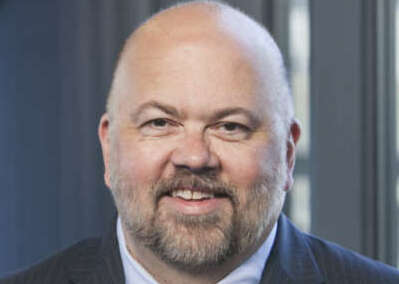
More firings may not lead to better results
Some proponents of an apolitical civil service argued that what President Trump argued for in his State of the Union address would turn federal workers into at-will...
This column was originally published on Jeff Neal’s blog, ChiefHRO.com, and was republished here with permission from the author.
During the president’s State of the Union address last week he said: “I call on the Congress to empower every cabinet secretary with the authority to reward good workers — and to remove federal employees who undermine the public trust or fail the American people.” Reactions to the president’s remarks ranged from high praise to condemnation. Either he wants to politicize the federal workforce or he wants to “drain the swamp.”
Some proponents of an apolitical civil service argued that the president’s proposal would turn federal workers into at-will employees. In effect, they would become political appointees and subject to the spoils system that governed the federal workforce before passage of the Pendleton Act. Others pointed out that the president specifically referenced the authority given to the Veterans Affairs Department by the VA Accountability and Whistleblower Protection Act of 2017, and that his proposal was not a request to be able to fire anyone for no reason. Some rejoiced at the prospect of mass firings of federal workers.
Like most debates in Washington, the truth is sometimes obscured by the hyperbole. The VA process is not at-will employment. When I first wrote about the bill, I said the accountability provisions of the bill are not unreasonable with respect to employees who are not executives. The Merit Systems Protection Board review allows ample time for the MSPB proceedings, provides for review by the full board and for judicial review. The reduced burden of proof is likely to create some issues until it is better defined in case law. The ability to reduce the pensions of criminals is unlikely to have many detractors. The executive provisions would be much better if they provided for MSPB review. I also said that once enacted, if it provides any success for the department in dealing with problem employees, but does not generate problems with abuse of its provisions, we should expect to see similar bills that would cover more or all of the federal workforce.
My view on the enacted legislation has not changed. It makes it a bit easier to fire federal employees, without doing significant harm to a merit-based civil service. It has not resulted in widespread firings, nor is it likely to. It is also not likely to result in dramatic changes in employee performance.
It is ironic that one of the problems with civil service reform proposals is that we tend to move into our partisan camps as soon as a proposal surfaces. The truth is that most federal employees do their jobs and do them well and they do not care whether the president is a Republican or a Democrat. That does not mean there is no room for improvement. The federal government, like many large organizations, could be more productive and efficient.
Federal employees have said for years that they would like to see their agencies do a better job of dealing with poor performers. The Federal Employee Viewpoint Survey (FEVS) has made that clear. However, there are also other problems that come up in FEVS and other surveys.
The attention we pay to firing people does little to deal with those other issues. It does not provide employees with more or better training. It does not improve the miserable federal hiring process, nor does it do anything to improve retention of high performing employees in hard-to-fill jobs. It also does nothing to deal with the antiquated general schedule pay system, or the ineffective performance appraisal processes. If we truly want to see a more productive civil service, we should also focus on those aspects of the civil service rules that will help with those problems.
Any company that keeps track of its costs will tell you that employee turnover is expensive. It generates replacement costs that include the hiring process, new employee training, and lost productivity. Poorly trained employees add to the cost through lower productivity and increased errors. Those problems are magnified when we are dealing with jobs that are hard to fill because of competition for talent. A truly meaningful approach to civil service reform would address the issues that affect the 90 percent or more of federal workers who do their jobs well.
I am not saying we do not need more accountability in government. I support making it easier to deal with that small percentage of feds who do not do a good job, as long as the solution does not subject federal employees to removal based on politics, favoritism or other non-merit factors. We just need to realize that fixing that problem will most likely not make as big a difference as some might hope.
Jeff Neal is a senior vice president for ICF and founder of the blog, ChiefHRO.com. Before coming to ICF, Neal was the chief human capital officer at the Homeland Security Department and the chief human resources officer at the Defense Logistics Agency.
Copyright © 2025 Federal News Network. All rights reserved. This website is not intended for users located within the European Economic Area.




